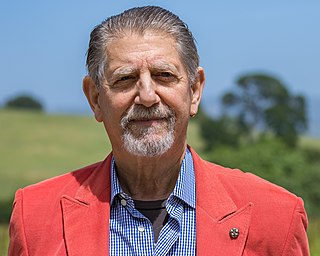A Quote by V. S. Naipaul
The family feuds or the village feuds often had to do with an idea of honor. Perhaps it was a peasant idea; perhaps this idea of honor is especially important to a society without recourse to law or without confidence in law.
Related Quotes
The vitality of thought is in adventure. Idea's won't keep. Something must be done about them. When the idea is new, its custodians have fervour, live for it, and, if need be, die for it. Their inheritors receive the idea, perhaps now strong and successful, but without inheriting the fervour; so the idea settles down to a comfortable middle age, turns senile, and dies.
Never can a new idea move within the law. It matters not whether that idea pertains to political and social changes or to any other domain of human thought and expression - to science, literature, music; in fact, everything that makes for freedom and joy and beauty must refuse to move within the law. How can it be otherwise? The law is stationary, fixed, mechanical, 'a chariot wheel' which grinds all alike without regard to time, place and condition, without ever taking into account cause and effect, without ever going into the complexity of the human soul.
The idea that each individual has intrinsic, God-given value and is of infinite worth quite apart from any social contribution - an idea most pagans would have rejected as absurd - persists today as the ethical basis of western law and politics. Our secularized western idea of democratic society owes much to that early Christian vision of a new society - a society no longer formed by the natural bonds of family, tribe, or nation but by the voluntary choice of its members.
Freedom cannot always continue in comfort and convenience, cannot be assured without sacrifice, without truth and decency, without willingness to work, without downright honesty and honor, and readiness to keep the commandments and live within the law...there is no liberty without a real respect for law; no liberty if we forget God, or fail to remember the principles on which freedom is founded.
If there is one word that describes the meaning of character, it is the word honor. Without honor, civilization would not long exist. Without honor, there could be no dependable contracts, no lasting marriages, no trust or happiness. What does the word honor mean to you? To me, honor is summarized in this expression by the poet Tennyson, "Man's word [of honor] is God in man."
The crown and glory of life is character. It is the noblest possession of a man, constituting a rank in itself, and an estate in the general good-will; dignifying every station, and exalting every position in society. It exercises a greater power than wealth, and secures all the honor without the jealousies of fame. It carries with it an influence which always tell; for it is the result of proved honor, rectitude, and consistency-qualities which, perhaps more than any other, command the general confidence and respect of mankind.
James, you are all the family I have. I would die for you. You know that. I would die without you. If it were not for you, I would be dead a hundred times over these past five years. I owe you everything, and if you cannot believe I have empathy, perhaps you might at least believe I know honor--honor, and debt--
From the beginning, there has been a tension in the reception of the Kantian idea of autonomy. If you emphasize the 'nomos' (the law), then you get one picture: the objectivity of ethics. If you emphasize the 'autos' - the self - you get the idea that we make the law. Kant never hesitated in his choice between the two emphases. He emphasizes the nomos (the universal and objective validity of the law).
The idea of absolute freedom is fiction. It's based on the idea of an independent self. But in fact, there's no such thing. There's no self without other people. There's no self without sunlight. There's no self without dew. And water. And bees to pollinate the food that we eat...So the idea of behaving in a way that doesn't acknowledge those reciprocal relationships is not really freedom, it's indulgence.





































